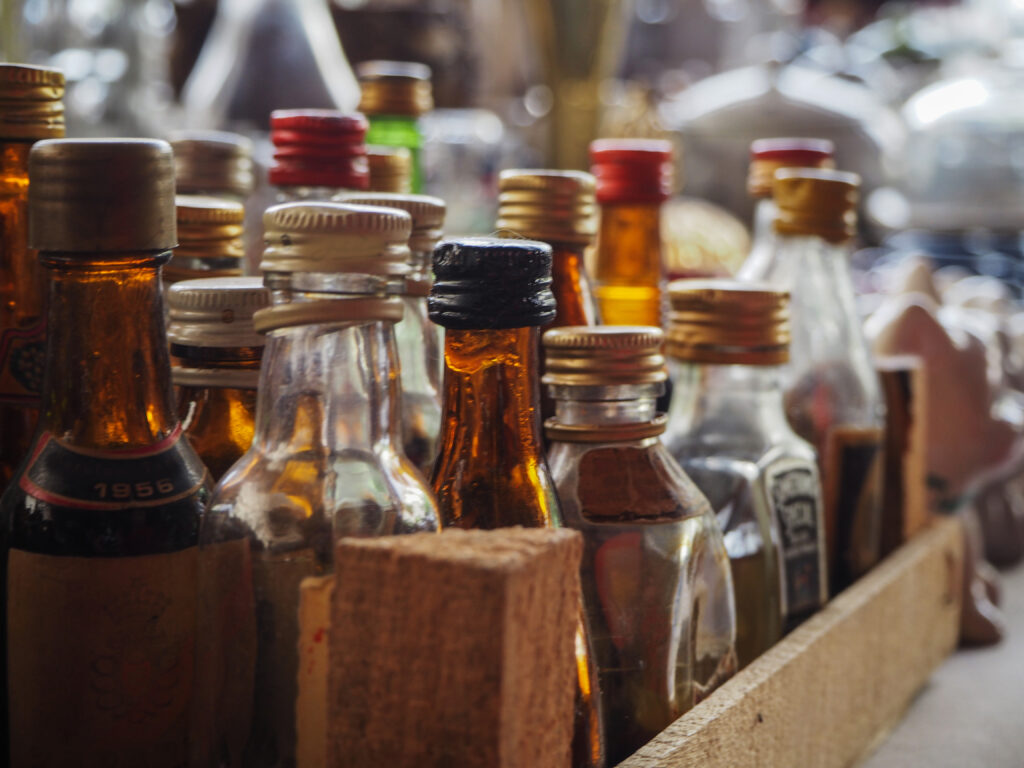Are you familiar with the term dram shop liability? The name may sound unfamiliar, but its implications can have major consequences for businesses and individuals.
Dram shop liability refers to laws that hold businesses, such as bars, restaurants, and liquor stores, accountable if they served alcohol to a person showing signs of intoxication who then caused harm to themselves or others.
In the United States, these laws can vary significantly from state to state, creating a complex web of legal responsibility, potential liability, and precautions.
Dram shop laws exist in California, but the regulations significantly limit who may seek a claim under this premise and when the statute applies.
If you suffer injuries due to a drunk driving accident in California, you have the right to pursue damages against the parties responsible, such as the drunk driver and their insurance company. In some instances, you could also file a claim against a third party under the state's dram shop statute.
A San Diego drunk driving accident attorney can evaluate your case to determine whether a basis for such a claim exists in your case and if any other avenues for compensation may be available to you under negligence laws.
Schedule A Free Case Evaluation
What Is Dram Shop Liability?
Dram shop liability relates to laws governing the liability of establishments serving alcohol. Under these laws, a business that sold alcoholic beverages to a person displaying signs of intoxication who then harmed others can be liable for the injuries and damages their customer caused. They discourage the irresponsible sale of alcohol and consequently minimize alcohol-related road accidents.
The History and Origin of the Term Dram Shop
The term dram shop originates from 18th century England, where establishments that sold gin by the spoonful or dram were common. It evolved into a legal term to encapsulate laws governing the sale of alcohol in establishments such as bars, taverns, restaurants, and liquor stores.

Dram shop liability remains paramount because of widespread alcohol consumption and its risks. Such laws can reduce cases of drunk driving, public disorder, and other alcohol-related offenses by holding businesses serving alcohol accountable in some scenarios for the negligence of the person consuming it.
Drunk driving is a global issue, but legislation across the United States is uneven. The reach of dram shop laws and who may be liable for an intoxicated individual's actions vastly differ from state to state. When applying dram shop laws, consider the context of the state.
While some have robust laws, others might have more lenient or stricter regulations. California has dram shop laws, but the leverage of drunk-driver liability is less than in most other states. The laws in California limit when an establishment or host can be liable for the drunken actions of another.
How Dram Shop Laws Vary by State
While all states have regulations managing the sale and consumption of alcohol, the specifics of these rules vary widely. The severity of penalties, the issuing of licenses, and the overall enforcement of these laws differ from one state to another.
Some states allow lawsuits against establishments serving alcohol to a person displaying signs of intoxication, while others focus on underage drinkers. The public and businesses serving alcohol need to know their specific state laws and the implications for their liability.
As an accident victim, knowing these laws and how they may apply to your case allows you to identify all parties potentially liable for your losses. A California drunk driving accident attorney is an advocate who can navigate these state-specific complexities for you.
Examination of Specific State Laws in California
In California, the dram shop laws are complex and multifaceted. According to the California Civil Code section 1714, "No social host who furnishes alcoholic beverages to any person may be legally accountable for damages suffered by such persons, or for injury to the person or property of, or death of, any third person, resulting from the consumption of such beverages."
This language severely limits the reach of the law. It prevents a victim from taking action against the party that provided alcohol to a driver who later caused an accident while drunk.
Social hosts and establishments retain liability under egregious circumstances. The law states that the alcohol provider may be liable if they knowingly furnished alcoholic beverages at their premises to a drunk minor who then caused injury or death. This incarnation of the law represents a significant shift from previous years when California had broader liabilities for alcohol servers.
Although you cannot pursue damages against a third-party host or establishment for the actions of a drunk driver, you can seek damages if the driver is a minor. The combination of underage drinking and driving is dangerous, substantially increasing the risk of accidents, injuries, and death.
Businesses and hosts must ensure they do not provide alcohol to underage individuals, as they may need to pay for the damage their customers or visitors may cause should they have an accident.
Implications of California's Dram Shop Laws
The interpretation and enforcement of dram shop laws in California have significant implications for businesses and individuals. Compliance with these laws for businesses involves comprehensive staff training and stringent procedures to avoid serving alcohol to minors. It also obliges servers to pay attention to the state of their patrons and strictly follow identification laws when serving alcohol.
Victims need lawyers who understand these laws when seeking compensation for injuries resulting from drunk driving. Knowing the specifics of these laws can ease the complex litigation process and potentially add sources of compensation.
A drunk driving accident lawyer can evaluate California's dram shop laws’ relevance to your case and determine whether the evidence supports filing a claim.
The Implications of Dram Shop Liability for Businesses
Strict California regulations bind businesses that sell alcohol. The dram shop law makes them responsible for ensuring their patrons are not too drunk and no minors purchase alcohol. If such a patron were to cause harm or damages, the business selling the alcohol could be liable.
This legislation requires businesses to exercise due care and vigilance in serving alcohol. A bartender may need to stop serving a patron after a few drinks or refuse service altogether if the customer is visibly drunk. Staff training and clear policies on handling such situations can be crucial in mitigating legal risks.
The Implications of Dram Shop Liability for Individuals
From an individual's perspective, understanding dram shop laws is equally important. They have implications for third-party alcohol-related injuries, allowing victims to seek justice.
Dram shop laws provide a legal pathway for victims of alcohol-related accidents to hold the establishments that served the alcohol liable. If you have suffered injuries from a drunk driver, you could also sue the bar, restaurant, or store that served them, particularly if the driver was underage.
The Potential Claims and Compensation
In a dram shop claim, you can demand compensation for medical bills, lost income, pain and suffering, and other damages resulting from the accident. The amount of compensation often depends on the severity of your injuries, the business's degree of fault, and the state's specific laws.
Filing a Dram Shop Claim in California
Filing a dram shop claim in California involves several steps. You must first prove that the person who caused your injury was drunk and underage when they received alcohol. The next stage is to demonstrate that the business was negligent in serving alcohol despite visible intoxication.
You must finally show that this sale of alcohol directly led to your injury and subsequent damages. A drunk driving accident lawyer can navigate these steps on your behalf.
Who Is Potentially Liable Under a Dram Shop Claim in California?
The list of individuals potentially liable under a California dram shop claim can be specific because of the state's stringent laws. Parties, such as businesses and social hosts, may be liable under particular circumstances.
A bar or restaurant can be liable if they knowingly served alcohol to a drunk minor who then caused harm. Social hosts who serve alcohol at private events may also be at risk. If they provided alcohol to a minor showing signs of intoxication who subsequently caused damage, that host could be liable.
While these scenarios constitute the basic liability premises under California's dram shop laws, each case differs regarding the specific circumstances and evidence. A drunk driving accident lawyer can provide more insight into your accident claim and determine whether the dram shop laws apply.
Although dram shop laws in California do not apply in most drunk driving accident cases, the state's negligence laws still provide a path to compensation against the driver, their vehicle insurance coverage, or another driver or third party who may have contributed to the accident and your injuries.
Proving Negligence for a Drunk Driving Accident in California
To prove negligence in a drunk driving accident in California, you need to establish a few elements:
- Duty of care: You must prove that the drunk driver owed you a duty of care. Every driver has a legal obligation to drive safely and not put others at risk.
- Breach of duty: You must demonstrate that the driver breached this duty of care. With drunk driving, this is typically easy to prove, as driving under the influence of alcohol is illegal and unsafe.
- Causation: You must prove that the breach of duty caused the crash and your injuries. This outcome may require the input of accident reconstruction experts or other specialist witnesses.
- Damages: You must verify that the harm you have suffered resulted from the crash. This harm can include physical injury, damage to property, emotional distress, lost income, or other economic and noneconomic damages.
You, as the claimant, have the burden of proof in a negligence case. You are responsible for providing sufficient evidence to support each element in the above list.
In California, even if the claimant is partly at fault for the accident, they may still be able to recover damages. These rules can be complex and may vary depending on the specifics of each case, so it is always advisable to enlist the services of an experienced and skilled drunk driving accident attorney. They can navigate the legal complexities and strive to maximize your compensation.

Seeking Legal Advocacy When a Victim of a Drunk Driving Accident
Dram shop liability laws have significant consequences for businesses and individuals, and understanding them is crucial for victims of intoxicated drivers on California's roads. These laws can provide a pathway to justice if you have fallen victim to such an incident, particularly involving an underage individual.
Navigating these laws is difficult, but a knowledgeable and passionate drunk driving injury attorney can determine the most effective route to compensation for your losses. Call one today.

